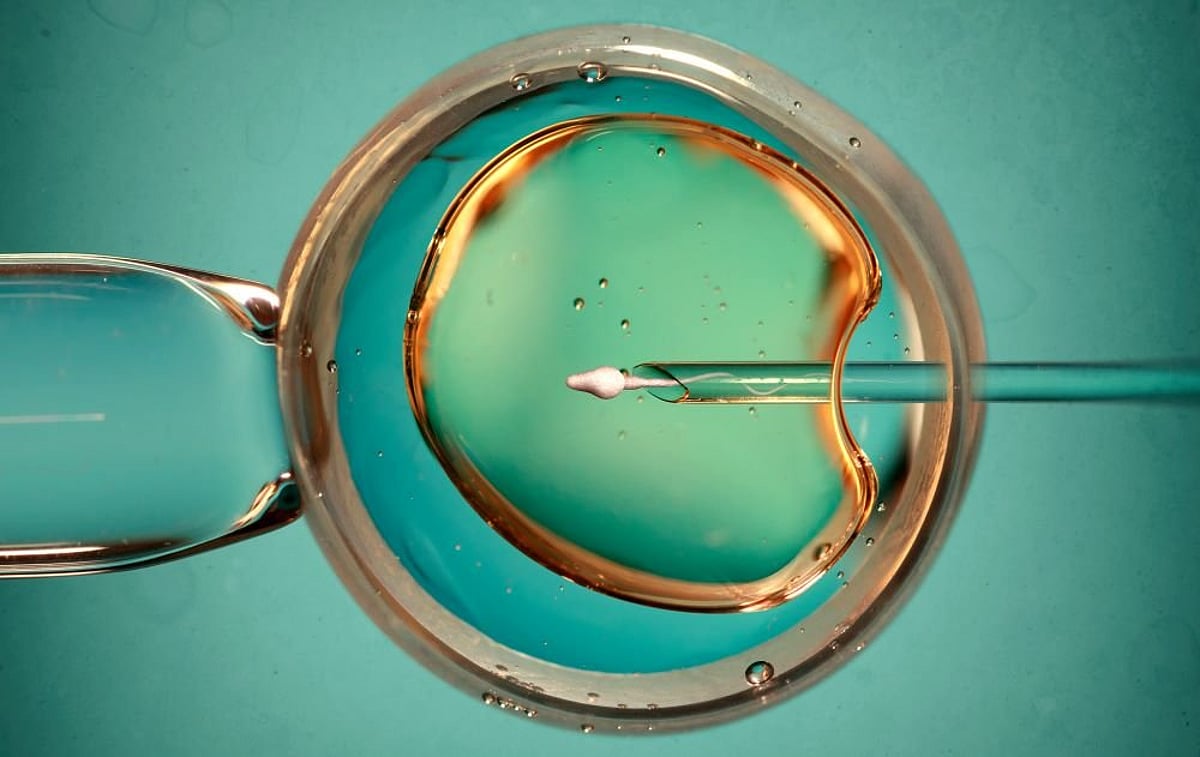Small Increased Risk for Congenital Anomalies Reported After ART

TUESDAY, Oct. 10, 2023 (HealthDay News) -- There is a small increased risk for congenital genitourinary abnormalities after assisted reproductive technologies (ARTs), according to a study published online Oct. 10 in the Annals of Internal Medicine.
Christos Venetis, M.D., Ph.D., from the University of New South Wales in Sydney, and colleagues examined the role of underlying infertility and fertility treatment on congenital anomaly risks in the first two years of life in a propensity score-weighted population-based cohort study. Data were included for 851,984 infants (828,099 singletons and 23,885 plural children) delivered between 2009 and 2017.
The researchers found that the overall incidence of congenital anomalies was 459 and 757 per 10,000 singleton and plural births, respectively. ART-conceived singleton infants had an elevated risk for major genitourinary abnormalities compared with naturally conceived (NC) singleton control infants without a parental history of infertility (adjusted risk difference [aRD], 19.0 cases per 10,000 births); the risk was unchanged compared with NC singleton control infants with a parental history of infertility (aRD, 22 cases per 10,000 births). In couples without male infertility, intracytoplasmic sperm injection (ICSI) was associated with an increased risk for major genitourinary abnormalities (aRD, 47.8 cases per 10,000 singleton births), after accounting for parental infertility. Some suggestion of an increased risk for congenital anomalies was seen after fresh embryo transfer, although the estimates were imprecise and inconsistent.
"We caution against overuse of ICSI without clear medical indications given its independent association with certain types of congenital anomalies," the authors write. "The obstetric care of patients having conceived after ART should include perinatal screening before and after birth given the increased risks for certain congenital anomalies in offspring."
Abstract/Full Text (subscription or payment may be required)
Related Posts
White Women Tend to Get Better Pain Management After Childbirth
MONDAY, April 25, 2022 (HealthDay News) -- After childbirth, some women who...
Doctors Working With Trans Kids Oppose ‘Unsafe’ State Bans
TUESDAY, Sept. 19, 2023 (HealthDay News) -- A new survey of U.S. doctors...
Biden Tests Positive for COVID
THURSDAY, July 21, 2022 (HealthDay News) -- President Joe Biden has tested...
MRI Might Boost Cancer Detection for Women With Dense Breasts
MONDAY, Feb. 6, 2023 (HealthDay News) -- Nearly half of women have dense breast...
